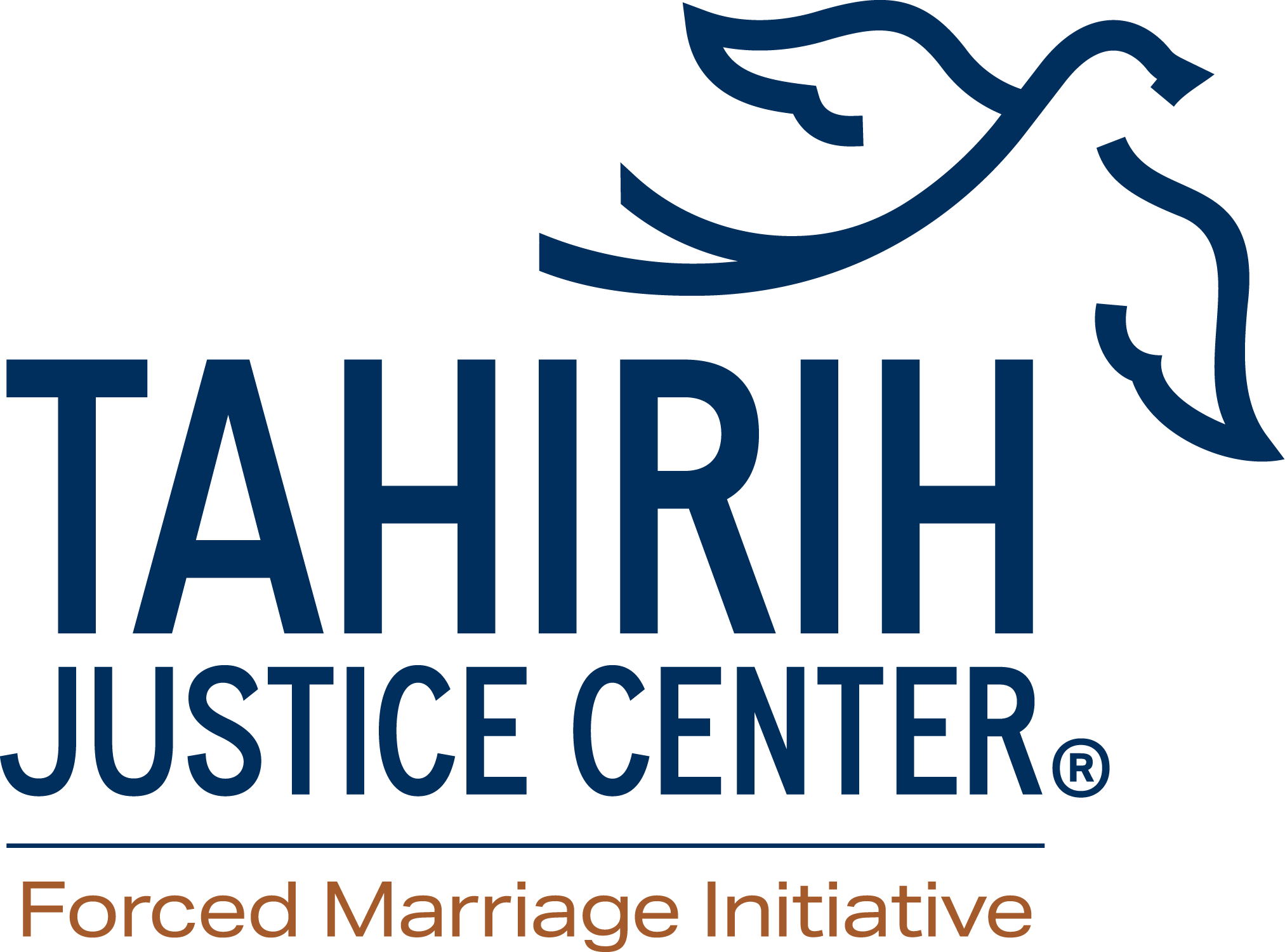Guidance for Service Providers
Isolation is one of the most common problems facing an individual who is trapped in, or under threat of, a forced marriage. They may feel like there is nobody that they can confide in and no resources or agencies geared to their specific situation. Talking to a stranger about personal matters can be very difficult if a survivor feels like she or he is breaking the confidence and trust of their families. Survivors may worry about how you are going to perceive them, their community, and their culture, and they might be fearful of the consequences to their family if they reach out for help. Language can pose additional barriers, with some survivors speaking English as a second language or not speaking English at all.
REMEMBER THE ONE CHANCE RULE
Often individuals only have one chance to reach out for help, and you may only have one chance to offer assistance and potentially save a life. Disclosures of forced marriage should never be dismissed. For many people, seeking help from an individual or agency is a last resort, and it is critical to take their story and situation seriously.
It is important to tell forced marriage survivors that they are not alone, and to reinforce their right to choose whether, when, and whom to marry.
If you think you are working with someone who may be facing a forced marriage, as a service provider you may want to find a private way to ask them about their situation. Because the term “forced marriage” may not resonate with the individual you are working with, we suggest using more general and open ended questions to learn more about their situation. For example, you can ask:
- How is your marriage partner being selected?
- Do you feel you have a choice in deciding when and whom you marry?
- Are you being pressured to marry?
- Who is selecting your spouse?
- Do you agree with your family’s choice?
- What would happen if you said “no”?
CONFIDENTIALITY IS KEY
Individuals are often hesitant to reach out for help because they fear that doing so will get back to their family or community members. You should consistently reassure the individual that your conversation is confidential AND/OR clearly explain your mandated reporting requirements and the limits of your confidentiality. If you are concerned about mandated reporting requirements, please reach out to the Forced Marriage Initiative for guidance and support.
CONSIDERATIONS WHEN WORKING WITH MINORS
Due to practical and legal considerations, a case involving a minor can be challenging and complex. While child protection services may be able to help, without expert guidance, standard child protection protocols may put an individual at greater risk of harm. In addition, laws in the United States generally preference parents’ rights over children’s rights. In many states, the minimum age to marry can be waived by parental consent.
When working with a minor facing a forced marriage please contact us for support and guidance on best practices!
TRAVEL OVERSEAS
We encourage all individuals to avoid traveling overseas if a forced marriage is possible or imminent.
If someone you know has any reason to suspect that a forced marriage might take place overseas, it is vital to make a plan to ensure their safety before they leave the United States. Often individuals are told they will be taking a trip for the purposes of visiting sick relatives or other family obligations, but if there are indicators that forced marriage is a risk, a safety plan is absolutely critical. Advocates cannot assist someone as effectively if they are abroad, and it is often extremely challenging to get help from local police and agencies in another country. Even something as simple as making a phone call or getting a taxi can be very difficult, particularly in remote locations and when the individual does not speak the language.
The Forced Marriage Initiative is here to work through safety and relocation plans and we encourage you to contact us if an individual is facing imminent travel abroad. Forced marriage situations can become dangerous very quickly and it is important to provide the individual with the information and support she needs to make her own choices.
Please contact us as soon as possible if you or someone you know may be facing travel overseas!
For more in-depth guidance check out our Training & Resource Toolkit


